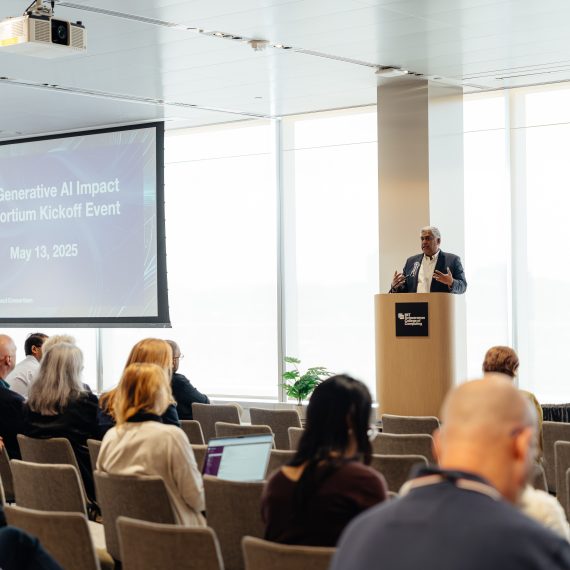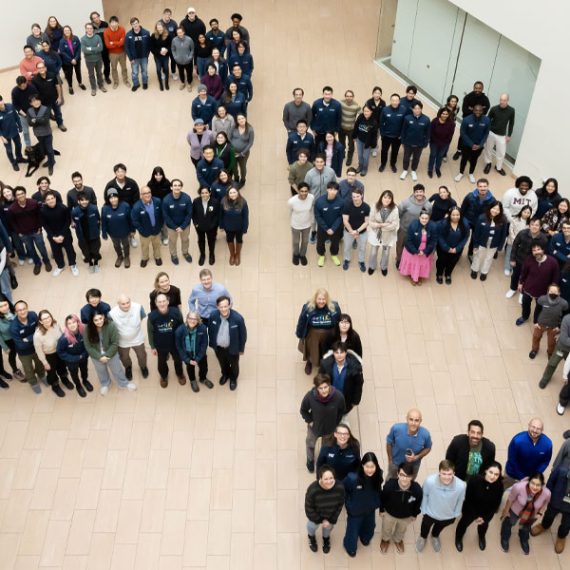Five graduate students awarded McGovern fellowships
This year, five graduate students have been awarded fellowships made possible by McGovern supporters.
Leah Acker, a fifth year graduate student in the labs of Ed Boyden and Robert Desimone, has been awarded a 2013-14 Friends of the McGovern Fellowship. Leah is focused on understanding the basis of neural dynamics underlying complex behaviors in primate models. She is developing extremely precise optogenetic technologies for observing neural circuits that give rise to high level cognitive functions such as attention. Leah hopes her work will lead to the development of new treatments for brain disorders.
Graduate student Yinqing Li, a member of Feng Zhang‘s lab, has been awarded a Friends of the McGovern Fellowship for his work sequencing the connectome, a comprehensive map of neural connections in the brain. Yinqing’s research has involved developing novel technologies for barcoding individual neurons with unique identifiers, and then pooling, amplifying, and preparing individual neurons for next-generation sequencing. His work has the promise to fundamentally change the way systems neuroscientists learn about the connections underlying neural circuit function.
The Mark Gorenberg ’76 Fellowship has been awarded to Leyla Isik, a fourth year graduate student studying with Tomaso Poggio, for her research into the visual system. Bridging neuroscience and computer science, Leyla uses sophisticated computer simulations and magnetoencephalography (MEG) imaging of humans to develop improved computer algorithms for object recognition. Leyla has developed a methodology that enables a machine to identity which image a human subject is looking at on the basis of his or her MEG data, and is currently performing new experiments to understand how humans recognize these images under complex viewing conditions (such as in a cluttered background, or at different positions or viewpoints). Leyla hopes to use these insights to develop a new computational model that simulates how humans develop invariant object recognition
Tatsuo Okubo, a graduate student in Michale Fee‘s lab, is this year’s recipient of the Huburt Schoemaker Fellowship. Tots’ research is focused on understanding the brain circuitry underlying the development of complex learned behaviors. Using young songbirds just learning to sing as a model, Tots is investigating the role of the premotor area HVC in the avian brain, which is analogous to Broca’s area in the human brain. Tots employs sophisticated electrophysiological recording techniques while the bird is singing to observe the process of learning at the level of individual neurons. His goal is to understand how the activity pattern in the premotor area changes during song learning, and he hopes this research will give insight into learning complex behavior in general such as language acquisition in humans.
The Janet and Sheldon (1959) Razin Fellowship has been awarded to Joshua Manning, a graduate student in John Gabrieli‘s Lab. Josh’s goal is to use neuroimaging to understand decision making, risk taking, and sense of reward in the brains of healthy people as well as individuals with psychiatric disorders. He is working with sophisticated computer models, MRI scans, and personality and cognitive data to develop a better sense of the brain basis of psychiatric illnesses. Josh hopes to advance our knowledge of the neurological root of behaviors linked to impatience and impulsivity in individuals with brain disorders such as anxiety and attention deficit hyperactivity disorder.




